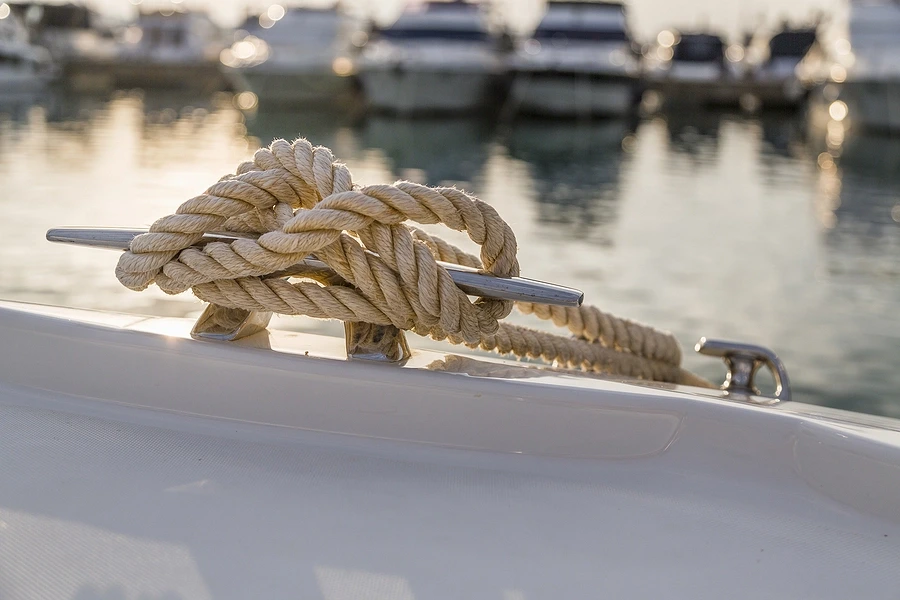Table of Contents
Mississippi’s rivers, lakes, and coastal areas provide beautiful settings for recreational boating. Unfortunately, these waterways can also be the site of serious accidents. When a boating trip turns into an unexpected disaster, understanding who is responsible becomes essential for injured individuals seeking justice.
This article explains how liability is determined in boating accidents on Mississippi’s waterways, common causes of these accidents, and what steps victims can take to protect their legal rights.
Causes of Boating Accidents in Mississippi
Boating accidents can occur for a variety of reasons, and determining the cause is an important step in identifying liability. Some of the most common causes include:
Operator Inexperience
Many boat operators lack the training or experience needed to navigate waterways safely. Poor judgment or lack of knowledge about water safety laws can lead to collisions or other mishaps.
Impaired Operation
Boating under the influence of alcohol or drugs is a leading cause of accidents. Impaired operators have slower reaction times and impaired judgment, putting everyone on the water at risk.
Excessive Speed
Speeding is a dangerous behavior on the water, just as it is on the road. High speeds make it harder to avoid obstacles, other vessels, or swimmers.
Poor Maintenance
Faulty equipment or a lack of necessary safety gear can also lead to accidents. For instance, a boat with a defective engine might fail at a critical moment, or missing life jackets could exacerbate injuries during an emergency.
Neglecting Weather Conditions
Sudden storms, high winds, or rough waters can quickly turn a pleasant outing into a perilous situation. Operators who fail to monitor weather reports or ignore warnings may be held accountable for accidents caused by these conditions.
Determining Liability in Boating Accidents
Liability for a boating accident often depends on proving negligence. Under Mississippi law, negligence occurs when a person fails to act with reasonable care, resulting in harm to others. To establish negligence, the injured party must demonstrate:
- The at-fault party owed a duty of care.
- The duty of care was breached.
- The breach directly caused the accident.
- The victim suffered damages as a result.
In the context of boating, several parties could potentially be held liable, including the boat operator, the owner, or even manufacturers of defective equipment.
Liability of the Boat Operator
The person operating the boat at the time of the accident is often the primary party responsible. Operators have a duty to follow safety laws, operate their vessel responsibly, and avoid behaviors that could endanger others. Examples of negligence might include failing to yield to another vessel, ignoring navigation rules, or operating while distracted.
Liability of the Boat Owner
Even if the owner was not operating the boat, they could still be held liable under certain circumstances. For example, if the owner knowingly allowed an inexperienced or intoxicated person to operate their boat, they may share responsibility for any resulting accidents.
Product Liability for Defective Boats or Equipment
In some cases, accidents occur due to equipment failure, such as an engine malfunction or a defective steering mechanism. When a defect causes harm, the manufacturer or distributor of the faulty product may be held liable under product liability laws. An investigation is often necessary to determine whether the defect was due to poor design, manufacturing errors, or inadequate warnings.
Shared Liability
Mississippi follows a comparative negligence rule, which means multiple parties can share responsibility for a single accident. If an injured person is partially at fault, their compensation may be reduced in proportion to their percentage of fault. For example, if a victim is found to be 20% at fault for the accident, their damages award would be reduced by that amount.
Steps to Take After a Boating Accident
If you’ve been involved in a boating accident, taking the right steps can protect your health and your legal rights.
- Seek Medical Attention
Even if your injuries seem minor, seeing a medical professional ensures they are properly evaluated and documented. Internal injuries or concussions might not be immediately apparent.
- Report the Incident
Notify local law enforcement or the Mississippi Department of Wildlife, Fisheries, and Parks about the accident. A formal report can serve as valuable evidence if you decide to file a claim.
- Document the Scene
Take photos or videos of the accident scene, including damage to vessels, injuries, and surrounding conditions. If there are witnesses, collect their contact information.
- Gather Evidence
Preserve any evidence related to the accident, such as damaged equipment or copies of boating licenses. This information can help establish liability during the claims process.
- Contact an Attorney
A lawyer experienced in boating accident cases can help navigate the complexities of Mississippi’s laws and advocate for fair compensation.
Types of Compensation Available
Victims of boating accidents may be entitled to several types of compensation, including:
- Medical Expenses: Covers hospital bills, physical therapy, and future medical needs related to the injury.
- Lost Wages: Reimburses income lost due to time away from work during recovery.
- Pain and Suffering: Accounts for physical pain and emotional distress caused by the accident.
- Property Damage: Covers repairs or replacement of damaged personal property, such as boats or equipment.
The total amount of compensation will depend on the specifics of the case, including the severity of the injuries and the degree of fault assigned to each party.
Unique Challenges in Boating Accident Cases
Unlike car accidents, boating accidents often occur in remote locations, making it harder to gather immediate evidence or contact law enforcement. Additionally, water can wash away physical evidence, such as debris or marks on vessels, complicating the investigation.
Boating laws also differ from traffic laws, and understanding these regulations is critical to building a strong case. An experienced attorney can help address these challenges and ensure that your rights are protected throughout the legal process.
How a Lawyer Can Help
Boating accident cases require a thorough understanding of Mississippi’s maritime and personal injury laws. An attorney can assist by:
- Investigating the cause of the accident and identifying all liable parties.
- Gathering evidence, such as witness statements, accident reports, and expert testimony.
- Handling negotiations with insurance companies to secure a fair settlement.
- Representing you in court if a settlement cannot be reached.
Having a lawyer on your side can make a significant difference in the outcome of your case.
Conclusion
Boating accidents can leave victims with lasting physical, emotional, and financial burdens. Understanding your legal rights is the first step toward recovery. By working with a skilled personal injury attorney, you can focus on healing while they handle the complexities of your case.
If you or a loved one has been injured in a boating accident on Mississippi’s waterways, don’t wait to seek legal advice. Acting quickly can help ensure that evidence is preserved, deadlines are met, and your rights are fully protected.

